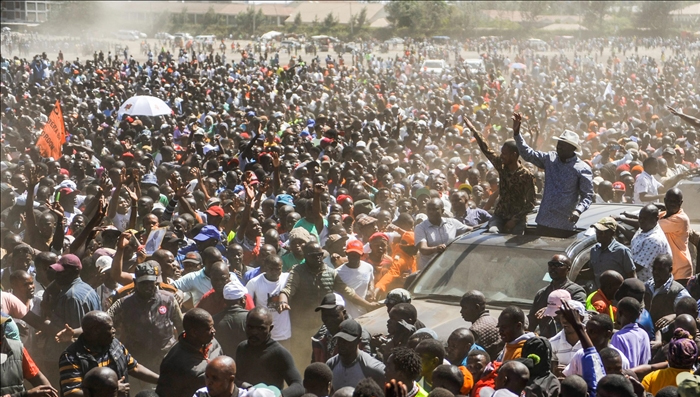(3 minutes read)
The Kenyan police resorted to tear gas to disperse a delegation of opposition politicians who wanted to visit the president’s office in the capital Nairobi, to mark their protest against the high cost of living
The Kenyan police resorted to tear gas to disperse a delegation of opposition politicians who wanted to visit the president’s office in the capital Nairobi, to mark their protest against the high cost of living. However, the anti-government protests, by and large, passed without any major incidents.
Elected officials from the opposition parties wanted to give a petition decrying the unacceptably high price rise, which had kept food, fuel, and electricity beyond the reach of the common man. They were denied access and were dispersed with tear gas. Importantly, the opposition parties led by Raila Odinga, who lost the presidential election by a low margin, a month ago called off the agitation. Now, he called for the resumption of protest against President William Ruto, whom he accuses of “stealing” the August 2022 presidential election.
Earlier protests had led to clashes with police, looting, and vandalism, resulting in the death of three persons including a policeman. The present protest was mostly peaceful except for some isolated clashes and incidents. Scuffles broke out between police and youths who blocked streets with burning tires. Nairobi regional police commander Adamson Bungei announced a ban on the protests earlier.
Read Also:
https://trendsnafrica.com/us-kenya-business-roadshow-in-new-york-to-bring-together-textiles-sector/
https://trendsnafrica.com/kenya-to-adopt-national-plan-for-the-development-of-green-mobility/
https://trendsnafrica.com/kenya-puts-first-satellite-into-space/
Kenya, which was earlier hailed as the economic powerhouse of East Africa, is facing skyrocketing inflation at 9.2 percent year-on-year in February, mainly due to food prices, which rose by 13.3%. Depreciation of the local currency is another serious problem being faced by the East African country.





